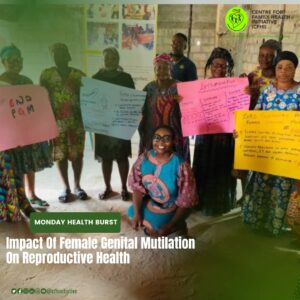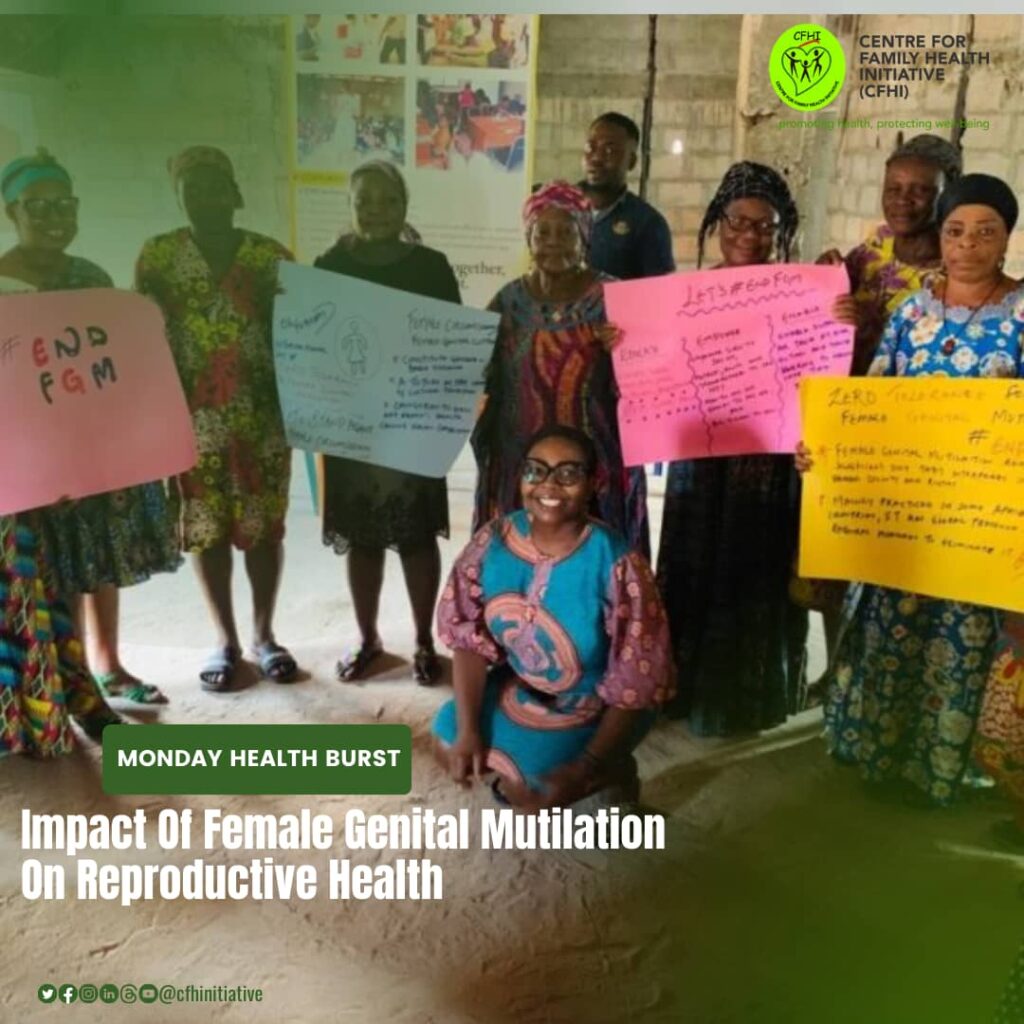The Impact of Female Genital Mutilation (FGM) on Reproductive Health
Female Genital Mutilation (FGM) is a harmful practice involving the partial or total removal of external female genitalia for non-medical reasons. Prevalent in various regions across the world, it has severe consequences on women’s reproductive health. According to United Nations International Children’s Emergency Fund (UNICEF), over 230 million girls and women have been cut worldwide, with Africa accounting for the largest share at over 144 million.
FGM often leads to severe pain, excessive bleeding, infections, and even death due to non-sterile procedures. In the long term, women face chronic infections, painful intercourse due to scarring, complications during childbirth, menstrual problems, and in severe cases, fistula formation leading to continuous urine or fecal leakage. Additionally, FGM contributes to PTSD, anxiety, depression, and social stigma, impacting relationships and self-esteem.
Efforts to eradicate FGM include global advocacy, legal enforcement, and community education. Many organizations promote alternative rites of passage to replace the practice while respecting cultural traditions.
As part of this ongoing fight, the Centre for Family Health Initiative (CFHI) actively engages in grassroots advocacy. In 2023, CFHI observed the International Day of Zero Tolerance for Female Genital Mutilation by educating over 60 female residents of Umuawuka Village in Emii, Owerri, Imo State on the dangers of FGM and the importance of its eradication. Through awareness campaigns, CFHI continues to empower communities with knowledge and resources to end this harmful practice.
FGM is a human rights violation with lasting reproductive health effects. Raising awareness and strengthening legal frameworks are crucial in eliminating this harmful practice.
Reference:
https://data.unicef.org/topic/child-protection/female-genital-mutilation/


